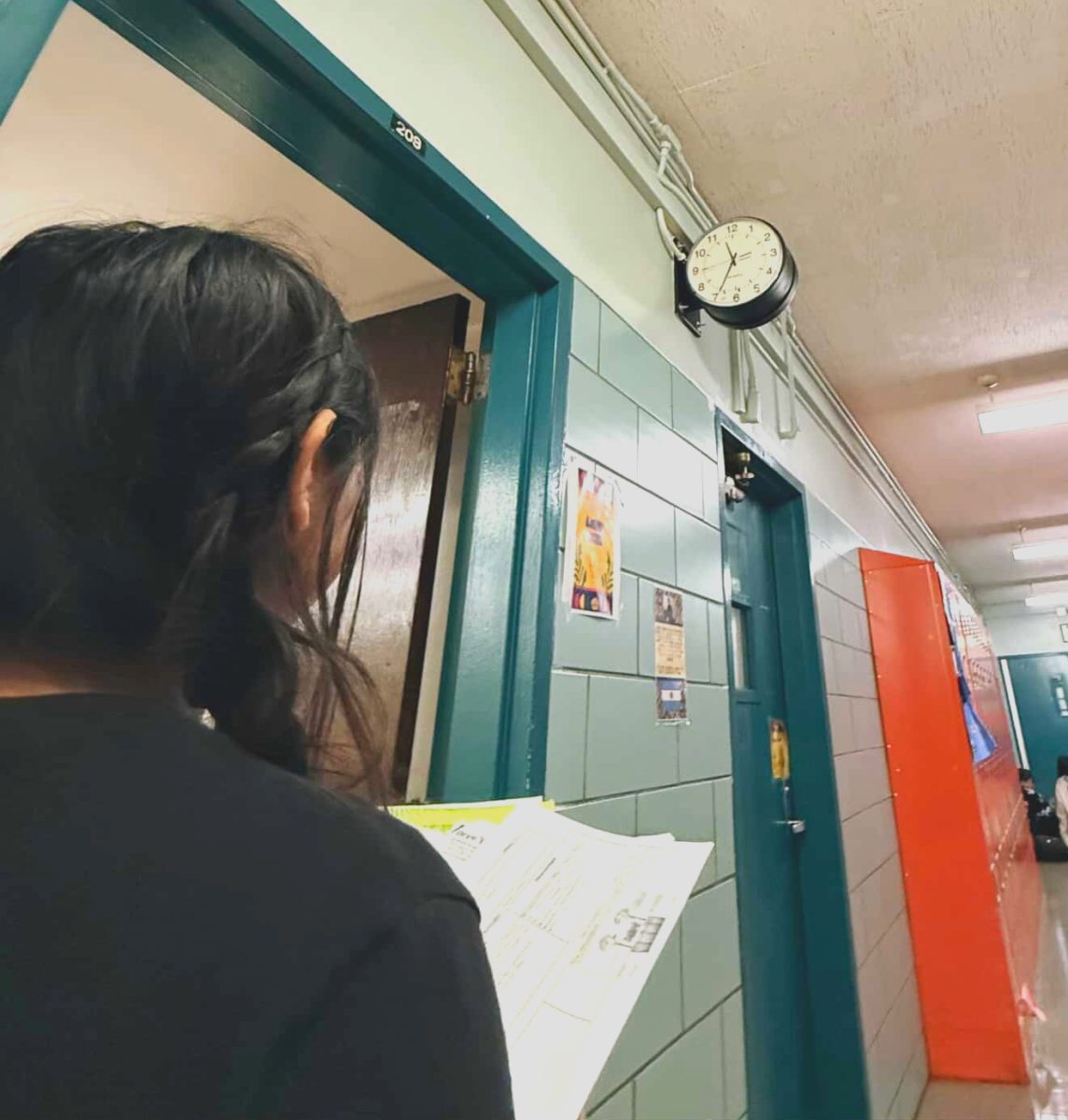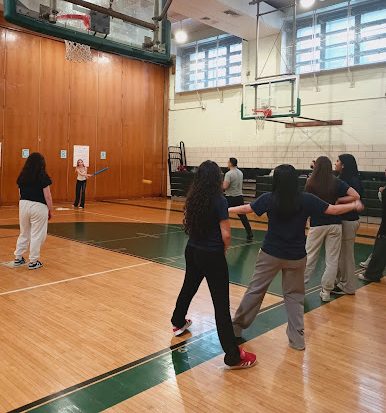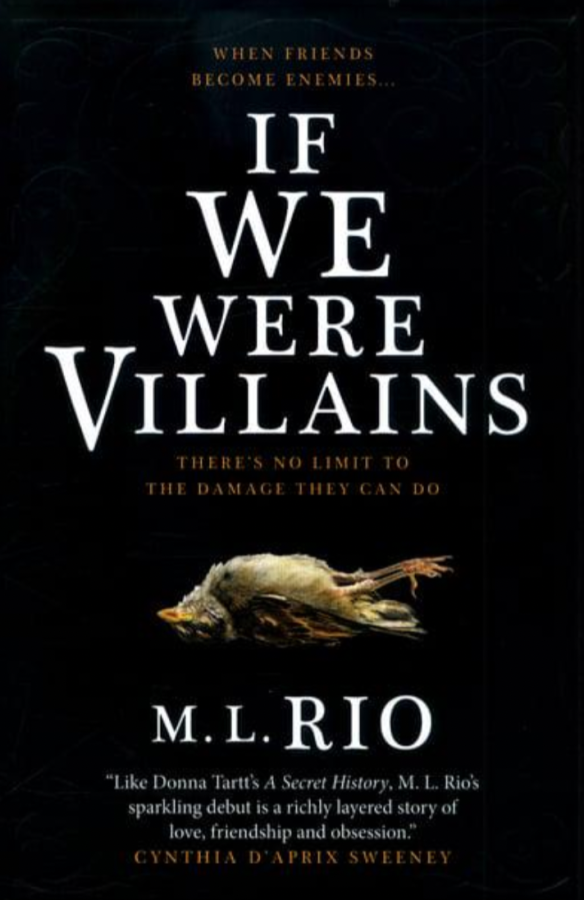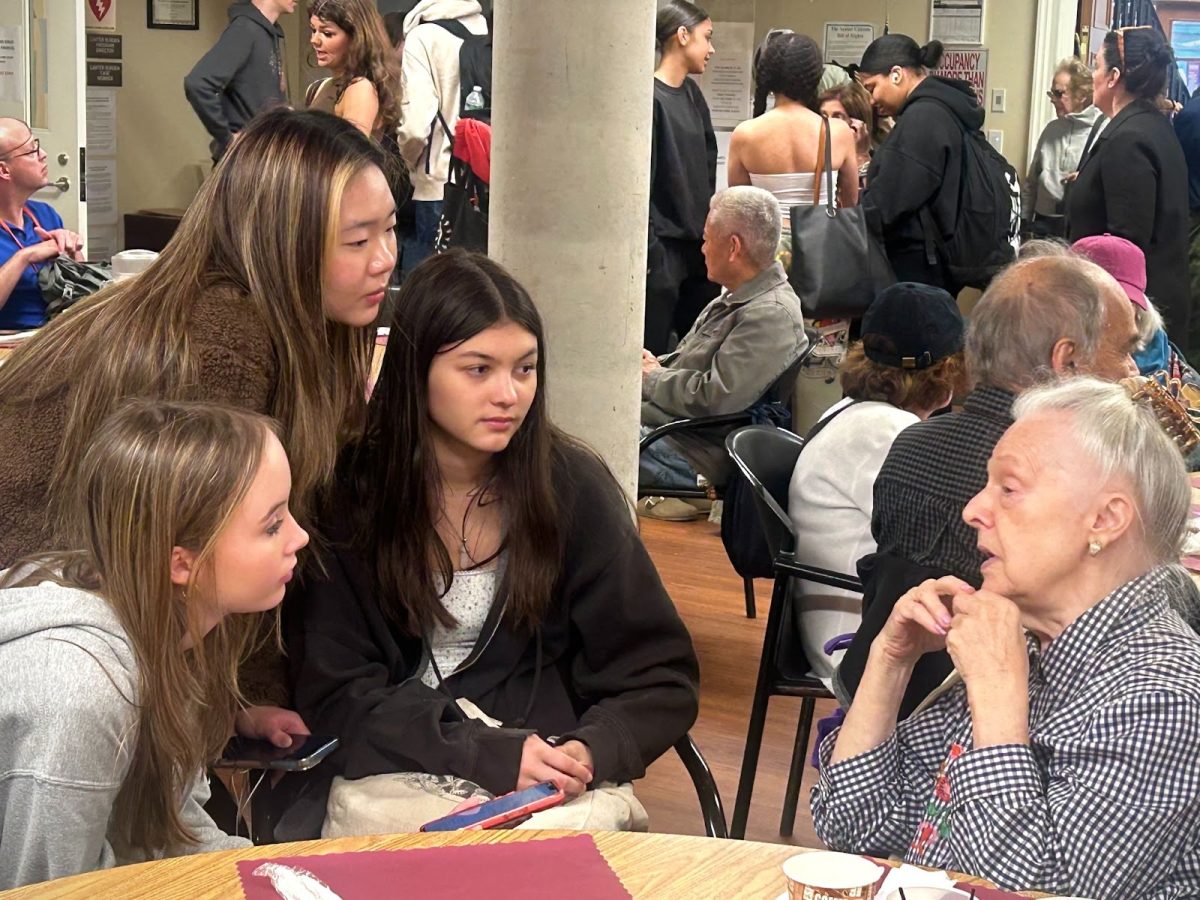Per Aspera Ad Astra
“If We Were Villains” Book Review
November 14, 2022
Zara
The book If We Were Villains, by M.L. Rio, explores the inner evil and morality of humans by blurring the line between what is right and wrong. Set in a prestigious art school, the main character, Oliver, and his friends James, Meredith, Wren, Filippa, Alexander, and Richard study acting. Throughout the book, we see glimpses of how the characters interact and communicate with each other on stage during their senior year of college.
The plot captures your attention right from the start as the novel begins ten years after the incident has already occurred. The protagonist, Oliver, has spent those years in jail for a crime he wasn’t guilty of in order to protect someone he loved. As the story alternates between the past and present, the reader slowly gathers more information about what really happened at the time of Richard’s death.
Richard and the Characters:
We can begin with the themes of morality that become prominent through the circumstances that surround Richard. The character was good at using others’ weaknesses to his advantage, which led him to have profound impacts on each of the other six in different ways. At this point, the reader is biased due to the unlikeability of Richard’s character, and although each character made a choice that contributed to the climax, we wonder, is Richard’s death still justified? This is a difficult question to answer as there is no simple answer – it is hard to say that Oliver, James, Meredith, Filippa, Alexander, and Wren were truly good people; but none of them were necessarily evil either.
During the entirety of the book, we watch as the characters become more and more immersed in acting out Shakespeare’s plays, which depicts emotions in a way that connects each character to their role. This allows certain personas and stereotypes — hero, villain, tyrant, temptress, etc. — to seep into their normal lives. When their roles are changed, however, tensions reach their breaking point, and the characters’ sense of identity are challenged while they are simultaneously consumed by their own passion. Ultimately, If We Were Villains is a beautiful and noteworthy read that I won’t forget.
Oliver and His Relationships:
The relationship between Oliver and James was extremely depressing. I wanted to hate the book for this, but I can’t bring myself to. Throughout the novel, Oliver constantly feels as though he isn’t truly part of the group. James is like his anchor, making Oliver feel stable because he trusts the other enough not to hurt or abandon him. This makes the ending of the book even more tragic, as they were so close to finally being together.
“But that is how a tragedy… breaks your heart – by making you believe that the ending might still be happy, until the very last minute.” Although their relationship was heartbreaking, I enjoyed the way it ended because it shows how one can go through so much in life and still not achieve happiness.
At first, I thought that Oliver wasn’t a very fascinating character. However, as the story progressed, I found myself relating to him and the way he is influenced by the people surrounding him. Oliver characterizes himself as average, saying, “I seemed doomed to always play supporting roles in someone else’s story. Far too many times I had asked myself whether art was imitating life or if it was the other way around.”
Despite being the main character, the protagonist sees himself as a product of his love for theater and literature instead of his own individual. He also seems to be more focused on the other characters, as he’s never perceived himself as anyone significant or memorable. His own identity is therefore cast aside in order to accommodate the others.
I loved M.L. Rio’s choice of words and her incorporation of figurative language in describing Oliver’s inner world. The way that she also presents queer relationships, grief, guilt, and addiction is exceptionally authentic and true to life, which persuades the reader to sympathize and possibly empathize, with the characters.
Broader Connection to Shakespeare:
Shakespeare’s work has played a prominent role in their lives as theater students. When they aren’t reciting his plays with one another, they are quoting it at their leisure.
In particular, one of Shakespeare’s plays, As you like it, describes the seven stages of a man’s life. The poem starts with the line “All the world’s a stage, And all the men and women merely players.” This connects back to how Oliver and his friends are actors at an elite school, in which they are also conforming to the roles given to them, both on and off the stage. Shakespeare draws a connection between society and actors, saying that by pretending we begin to lose our own identity while searching for one.
The poem later says “And one man in his time plays many parts,” which relates to how Oliver goes through several critical moments in his life and progresses more and more, from the time he was just about to finish college to when he turns thirty-one. Due to a series of twists and turns, his future was essentially lost, while life will continue to pass and repeat. Oliver ends the story back at where he started, still searching for a purpose and for a way to truly be himself.
It might also be important to mention that the number seven is defined as lucky, symbolizing completeness and perfection. Although there are seven characters in the book, I would not consider them to have a very happy ending. Ultimately, however, If We Were Villains is a beautiful and noteworthy read that I won’t forget.
Scarlett
It’s impossible to articulate how aggravating the end of this book was for me. Whether this shows how well the author gets into her readers’ heads, or how it makes the book a horrible read, the ending left me in a state of shock. While the beginning of a book helps you decide whether or not you’ll finish reading, conclusions play an important role in dictating the way you’ll remember this book in the future. Will it be one you’ll strongly recommend to your friends, one you will forget to mention, or one you can’t stop criticizing? In the context of If We Were Villains I can’t tell you what your ultimate opinion should be, but I can help you reach it.
Everything about this book — from the complex development of character relationships to the nearly incomprehensive Shakespearian dialogue encompassing centuries old references — is mind-blowing. While it is hard to find anything too detrimental to say about the overall book, it also has some inexcusable flaws that should be addressed.
Although most may believe sinister and twisted books have to be filled with horrible, physical scenes of violence and depictions that will make your heart race from terror, some of the most horrifying books can be ones that lack these details. Rather, they have you running in circles trying to keep up with the storyline before throwing you a sudden and agonizing twist that you can’t recover from. Maybe that’s a little intense, but that’s the best way I can come close to describing how the ending of If We Were Villains leaves you feeling. In that way, the author comes close to creating an absolute masterpiece.
This story had a lot of potential but it was held back by some crucial aspects. Most significantly, every single character in this book was derived from a stereotype. Nothing made them stand out because the way they acted was predictable, and none developed a sense of individuality that should come with well-built and interesting characters in novels.
This is especially the case with a character like Richard, who the plot is centered around. Readers should have been given more context to understand why things play out the way they do. Although it could be an artistic choice to leave an audience in the dark in order to build suspense, I believe this to be a case where the background and explanation of certain characters was necessary, but never delivered.
The tyrannical way Richard acts towards his classmates was apparently a drastic change in his character as viewed from the perspective of his friends. This development affects the whole storyline, but how or why it occurred was never explained. The readers are left more disoriented by lack of information than eagerly following the suspense of what happens next. Many at that point will continue to read without proper comprehension of previous events.
The shift in Richard’s behavior depicts the author’s laziness, as she tries to hide glaring flaws by putting other characters in the spotlight. Overshadowing a main character’s reason for behaving the way he does is not the proper way to go about writing a book, especially considering that the general focus is that of character complexity.
“Per aspera ad astra,” is Latin for “Through the thorns, to the stars.” This accurately describes this book as a whole. All characters in the book face “thorns”, and only once they do can the plot develop for them to go “to the stars.” To persevere through the main conflict every character faces a challenge of different depths, and so they are all affected distinctively. The way they approach and resolve their “problems” is unique to themselves, which goes to show how thorough this story and its respective characters were. For this, M. L. Rio deserves some applause. However, what she doesn’t deserve applause for is leaving her readers with a cliffhanger that will never be addressed, as there won’t be another book. Don’t let this keep you from reading this novel though, it’s worth the heartbreak.



























